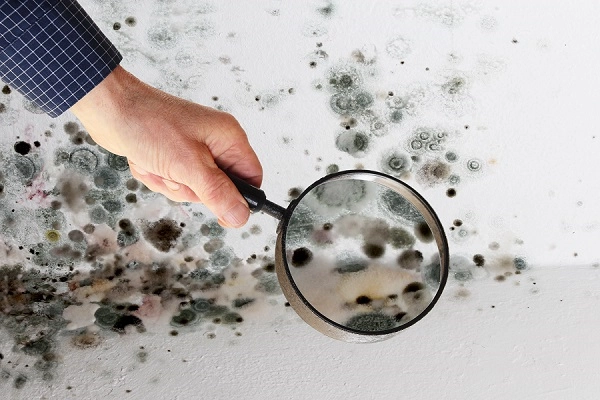Partners in community care
Salem Health Hospitals & Clinics and Santiam Hospital & Clinics share a culture that is committed to high-quality local health care. We are dedicated to our vision of a healthy, vibrant community and expanding access to medical services.
Uncommon causes of common cold symptoms

Consider putting on your detective hat when it comes to pinpointing sickness during the winter. Solving this mystery could hinge on recognizing an often forgotten suspect!
Elementary, my dear Watson!
Check out these suspicious symptoms:
- Coughing
- Sneezing
- Runny nose
- Itchy eyes and nose
- Dark circles under the eyes
Some people may think that has to be a cold or maybe the flu. Sorry! Those are all allergy symptoms caused by dust, pollen or mold.
Another big clue: a cold usually doesn’t hang around for more than ten days. However, allergies can last for weeks and even months.
The not-so-great indoors
If you have seasonal allergies, like from pollen in the spring, you might think a break is on the way during the winter.
But when we spend more time inside, some folks might notice indoor allergies — such as dust mites and mold — more.
Use a magnifying glass
Dust mites are tiny bugs that flourish in mattresses and bedding. They can cause allergy symptoms when their droppings and remains become airborne.
Mold is a fungus that thrives in damp, humid areas of the house — like bathrooms. When mold spores get into the air, they can also trigger allergy symptoms.
Lastly, there’s bad news for pet owners: a protein found in pet dander, saliva and urine can also create allergy symptoms.
Busted!
See your doctor if those symptoms last more than a week. They may refer you to an allergist who may give you a skin or blood test.
If the allergist confirms you have winter allergies, there are several remedies:
- Antihistamines reduce sneezing, runny nose and itching.
- Decongestants help clear mucus to ease congestion and swelling.
- Immunotherapy, such as allergy shots or under-the-tongue tablets can lessen symptoms for an extended period of time.
Hey allergies — beat it!
Unfortunately, there’s no way to prevent allergies. However, these simple steps can help you to avoid trouble during the winter:
- Replace moldy shower curtains, carpeting or wallpaper.
- Clean showers, tubs and sinks with a 5 percent bleach solution and a little detergent.
- Use a dehumidifier to keep humidity below 50 percent in your home.
- Install a HEPA air filter to clear dust from indoor airflow.
- Wash bedding weekly in hot water.
As for pet owners: Don’t let dogs or cats sleep in the bedroom — and bathe them at least once a week.
Case closed!- Wellness
- article

Uncommon causes of common cold symptoms


Consider putting on your detective hat when it comes to pinpointing sickness during the winter. Solving this mystery could hinge on recognizing an often forgotten suspect!
Elementary, my dear Watson!
Check out these suspicious symptoms:
- Coughing
- Sneezing
- Runny nose
- Itchy eyes and nose
- Dark circles under the eyes
Some people may think that has to be a cold or maybe the flu. Sorry! Those are all allergy symptoms caused by dust, pollen or mold.
Another big clue: a cold usually doesn’t hang around for more than ten days. However, allergies can last for weeks and even months.
The not-so-great indoors
If you have seasonal allergies, like from pollen in the spring, you might think a break is on the way during the winter.
But when we spend more time inside, some folks might notice indoor allergies — such as dust mites and mold — more.
Use a magnifying glass
Dust mites are tiny bugs that flourish in mattresses and bedding. They can cause allergy symptoms when their droppings and remains become airborne.
Mold is a fungus that thrives in damp, humid areas of the house — like bathrooms. When mold spores get into the air, they can also trigger allergy symptoms.
Lastly, there’s bad news for pet owners: a protein found in pet dander, saliva and urine can also create allergy symptoms.
Busted!
See your doctor if those symptoms last more than a week. They may refer you to an allergist who may give you a skin or blood test.
If the allergist confirms you have winter allergies, there are several remedies:
- Antihistamines reduce sneezing, runny nose and itching.
- Decongestants help clear mucus to ease congestion and swelling.
- Immunotherapy, such as allergy shots or under-the-tongue tablets can lessen symptoms for an extended period of time.
Hey allergies — beat it!
Unfortunately, there’s no way to prevent allergies. However, these simple steps can help you to avoid trouble during the winter:
- Replace moldy shower curtains, carpeting or wallpaper.
- Clean showers, tubs and sinks with a 5 percent bleach solution and a little detergent.
- Use a dehumidifier to keep humidity below 50 percent in your home.
- Install a HEPA air filter to clear dust from indoor airflow.
- Wash bedding weekly in hot water.
As for pet owners: Don’t let dogs or cats sleep in the bedroom — and bathe them at least once a week.
Case closed!


Leave a commentOrder by
Newest on top Oldest on top